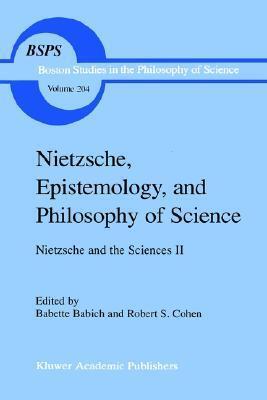
Nietzsche, Epistemology, and Philosophy of Science: Nietzsche and the Sciences II
아직 평점이 없습니다
Science & Technology
History
Philosophy
형식
하드커버
페이지
400
언어
영어
출판됨
Aug 31, 1999
출판사
Springer
ISBN-10
0792357434
ISBN-13
9780792357438
설명
This volume delves into the profound intersections between Nietzsche's thoughts and contemporary epistemological inquiries within the realm of the philosophy of science. Through a series of insightful essays, it examines how Nietzsche's perspectives challenge traditional understandings of knowledge, reality, and the scientific method. Contributors from diverse backgrounds bring forth interpretations that reveal the enduring relevance of Nietzsche's critiques of objectivity and certainty.
The authors engage in a dialogue that stimulates critical reflection on the nature of scientific inquiry and its philosophical implications. By confronting established paradigms, they explore how Nietzsche’s ideas can illuminate modern debates about the role of values and interpretative frameworks in scientific practices.
As readers navigate through the discussions, they encounter a rich tapestry of philosophical arguments that not only unpack Nietzsche's impact on epistemology but also encourage a re-evaluation of the assumptions underpinning contemporary science. This collection ultimately serves as an invitation to rethink the very foundations of knowledge and the implications for scientific exploration in a postmodern context.
The authors engage in a dialogue that stimulates critical reflection on the nature of scientific inquiry and its philosophical implications. By confronting established paradigms, they explore how Nietzsche’s ideas can illuminate modern debates about the role of values and interpretative frameworks in scientific practices.
As readers navigate through the discussions, they encounter a rich tapestry of philosophical arguments that not only unpack Nietzsche's impact on epistemology but also encourage a re-evaluation of the assumptions underpinning contemporary science. This collection ultimately serves as an invitation to rethink the very foundations of knowledge and the implications for scientific exploration in a postmodern context.